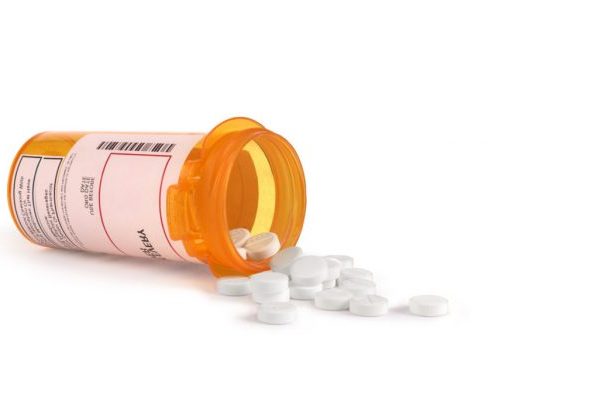
Medications to Stop Drinking Alcohol
JUMP TO
Naltrexone | Disulfiram/Antabuse | Acamprosate | Gabapentin | Baclofen | Topiramat
Table of Contents
- What is Medication-Assisted Treatment (MAT)?
- Benefits of Medication-Assisted Treatment (MAT) in Alcohol Addiction Recovery
- How Effective is MAT?
- Medications to Stop Drinking Alcohol
- Medication Comparison
- Are There Medications for Detox From Alcohol Addiction?
- Do the Medications Make You Sick When You Drink?
- How to Be Successful with Medication Treatment for AUD
- How to Start Medication Treatment for Alcohol Use Disorder
Alcohol use disorder (AUD) is a challenging condition that affects millions of people worldwide. Medications can play a helpful and significant role in the treatment of AUD by helping to reduce cravings, manage withdrawal symptoms, and prevent relapse.
Naltrexone, Disulfiram (Antabuse), Acamprosate (Campral), Gabapentin, Baclofen, and Topiramate are medications that each serve a unique purpose and offer distinct benefits in supporting efforts to drink less or reach sobriety. Understanding these medications enables individuals to make informed decisions about their treatment options and find the support they need to overcome alcohol dependence.
We’re here to help you understand the benefits and uses of these medications so you can determine if they are a good fit to help you reach your goals. In this article we’ll answer questions you may have about specific medications and how to get started.
If you have questions, get in contact with us to learn more. For a direct comparison of the different medications, see our chart below.
Jump to the medication comparison chart.
What is Medication-Assisted Treatment (MAT)?
Medication-Assisted Treatment (MAT) is a comprehensive approach to treating alcohol use disorder (AUD) that combines FDA-approved medications with counseling and behavioral therapies. MAT addresses the complex needs of individuals by targeting both the physical and psychological aspects of addiction, providing a holistic treatment plan for long-term recovery.
MAT involves using medications such as Naltrexone, Disulfiram (Antabuse), Acamprosate, Gabapentin, Baclofen, and Topiramate alongside behavioral therapies. These medications help manage withdrawal symptoms, reduce cravings, and prevent relapse, making sobriety more attainable.
Benefits of Medication-Assisted Treatment (MAT) in Alcohol Addiction Recovery
- Reduction of Cravings: Medications like Naltrexone and Acamprosate alter brain chemistry to decrease alcohol cravings, aiding sobriety.
- Management of Withdrawal Symptoms: Medications such as Gabapentin and Baclofen alleviate withdrawal symptoms, ensuring a safer detoxification process.
- Prevention of Relapse: Disulfiram (Antabuse) deters drinking by interfering with alcohol’s pleasurable effects.
- Support for Behavioral Therapies: Combining MAT with counseling addresses underlying psychological issues, promoting comprehensive recovery.
- Improved Overall Health: Reducing alcohol consumption with MAT enhances physical and mental health, lowering the risk of alcohol-related diseases.
How Effective is MAT?
MAT is highly effective in treating AUD, significantly improving long-term recovery rates. By reducing cravings and withdrawal symptoms, MAT helps individuals stay focused on their recovery and decreases the likelihood of relapse.
For some, there has been concern that MAT is “substituting one drug for another.” This is not the idealogy behind MAT. It uses medications that do not produce the euphoric effects of alcohol, helping manage withdrawal symptoms and cravings without creating new dependencies. These medications are prescribed and monitored by healthcare professionals to ensure safe and effective use.
Medication-Assisted Treatment offers a multifaceted approach to overcoming alcohol addiction, providing essential support and increasing the chances of successful recovery.
Medications to Stop Drinking Alcohol
Several medications can help reduce cravings for alcohol and support sobriety when used in conjunction with other therapies and medical supervision. Some of the most common medications to stop drinking are:
- Naltrexone: It helps reduce cravings over time by blocking the rewarding effects of alcohol, thus reducing cravings. It can be taken daily or as needed.
- Acamprosate: It stabilizes brain chemistry and can keep cravings under control once you’ve already quit, helping to prevent relapse. It is usually taken daily.
- Baclofen, Topiramate & Gabapentin are all off-label medications that reduce alcohol cravings by altering brain chemicals and managing anxiety. Baclofen specifically reduces anxiety and other triggers, while Topiramate changes brain chemicals related to addiction, making drinking less appealing. Gabapentin helps manage withdrawal symptoms and calm the nervous system.
Read more: 5 Ways Medication Can Make Quitting Alcohol Easier
Medication Comparison
| Medication | Summary | Best For: | How It Works |
|---|---|---|---|
| Naltrexone | Naltrexone is one of the most common medications for alcohol use disorder. It boasts a high success rate and is ideal for people who want to cut back, or change their drinking behaviors. |
|
Naltrexone reduces your motivation to drink by blocking the reinforcement or reward of alcohol. Over time, this begins to change your brain’s reaction to alcohol, and many people find that they lose interest in drinking. |
| Disulfiram/Antabuse | Disulfiram is the original medication to treat alcoholism. It causes you to feel ill when you drink, motivating you to stay abstinent. Gentler medications are now available, but Antabuse can still work for some people. |
|
Disulfiram causes severe, hangover-like symptoms to appear when you drink even a small amount of alcohol. Essentially, it stops your liver from breaking down alcohol completely. |
| Acamprosate | Acamprosate is the most recent of three FDA approved medications for treating alcohol use disorder. Also known by the brand name Campral, it is often used to help people maintain abstinence once they’ve stopped drinking. |
|
Rather than blocking the pleasurable effects of alcohol, acamprosate appears to work by restoring a chemical imbalance in your brain caused by chronic drinking. This can make it easier for you to avoid alcohol, and eliminates a lot of common drinking triggers. |
| Gabapentin | Gabapentin is an off-label medication for alcohol use disorder, originally developed to treat epilepsy. If you struggle with anxiety or insomnia, this medication may help you quit alcohol more easily. |
|
Gabapentin reduces anxiety for many people, and also controls the worst side effects of alcohol detox. This can make it a good substitute for people who don’t react well to naltrexone, and also help people adjust to other medications. |
| Baclofen | Baclofen is a medication often used to treat muscle spasms, which has gained some popularity as a treatment for alcohol addiction. In the cases where it works, it can achieve powerful results. |
|
Baclofen seems to help people stop drinking by replacing the role that alcohol plays in the brain. As a result, some people stop feeling like they need alcohol when they take the medication. |
| Topiramate | Topiramate is another common off-label treatment for alcohol use disorder. It has shown strong all-around effectiveness in clinical trials and is available generically. |
|
Topiramate is generally prescribed to treat seizures and migraines, but also seems to help with alcohol use disorder. People who take it appear to have fewer cravings. They also report less pleasure from alcohol, and have fewer anxiety-related drinking urges. Topiramate even seems to work better than naltrexone in some studies. |
|
|
|
|
|
Are There Medications for Detox From Alcohol Addiction?
There are no medications that can prevent alcohol withdrawal, but there are many that can help manage it. The most popular include:
- Benzodiazepines – including Librium and Valium. These medications are sedative, assist with anxiety, and can mute many of the worst withdrawal symptoms. The drawback is that they, too, are addictive, and need to be tapered off. However, they are among the most commonly used in rehab facilities to ease people off of alcohol.
- Baclofen – This drug can be used to gradually reduce alcohol consumption, or make withdrawal less severe. It can also help you maintain abstinence long-term and has been shown to reduce people’s interest in alcohol overall. While not addictive, baclofen does have its own withdrawal effects and needs to be tapered off.
- Gabapentin – This drug is primarily used to treat epilepsy and nerve pain, so it can prevent seizures and other nervous-system-related consequences of alcohol withdrawal. It may also have its own withdrawal symptoms. Like baclofen, it can help some people avoid relapse over the long term.
None of these medications can block the effects of detox completely, and none should be taken without supervision. Alcohol withdrawal can be dangerous, and even fatal in some extreme cases. If you experience any physical addiction symptoms, talk to a doctor, and don’t go it alone.
Do the Medications Make You Sick When You Drink?
The only medication that intentionally makes you feel ill from drinking alcohol is disulfiram, also known as Antabuse.
This treatment for alcohol addiction was discovered in the mid-20th century. Until the 1990s it was the only approved option for treating alcohol use disorder. Because of this, many people still associate medication-assisted treatment with the effects of disulfiram, which basically causes a severe hangover whenever you have even a small amount of alcohol.
Disulfiram can be a powerful deterrent to help you stay abstinent, but it’s also a pretty severe way to keep yourself sober. In the past 20 to 30 years, other medication options—including naltrexone and acamprosate—have emerged. Both of these drugs are FDA-approved, and neither works by making you ill when you drink.
Other medications may have side effects that make you feel ill, but this is not intentional. If you feel sick after taking any other drug to quit drinking, ask your doctor about alternatives.
How to Be Successful with Medication Treatment for AUD
Achieving success with medication treatment for alcoholism involves a holistic approach that combines medication with other supportive treatments. Here are some key tips to enhance your recovery journey:
- Combine Medication-Assisted Treatment (MAT) with counseling and behavioral therapies. Regular sessions with a therapist or counselor can help address the underlying psychological issues related to alcohol use disorder (AUD), providing you with coping strategies and emotional support.
- Regular medical supervision is crucial. Ensure you have consistent check-ins with your healthcare provider to monitor your progress, adjust medication dosages if necessary, and manage any side effects. Open communication with your doctor helps tailor the treatment plan to your specific needs.
- Building a strong support system is vital. Engage with support groups and lean on family and friends for encouragement and accountability. This network can provide invaluable emotional support and help you stay committed to your recovery goals.
- Incorporate healthy lifestyle habits. Regular exercise, a balanced diet, and mindfulness practices such as meditation or yoga can improve your overall well-being and reduce the risk of relapse.
By combining medication with these supportive strategies, you can enhance the effectiveness of your treatment and increase your chances of achieving lasting sobriety. Remember, recovery is a gradual process that requires patience, persistence, and a comprehensive approach.
How to Start Medication Treatment for Alcohol Use Disorder
It’s important to take the proper steps with a medical professional to start medication treatment for alcohol use disorder. The steps below will help you safely begin medication-assisted treatment.
1. Consult a Doctor or Addiction Specialist
Begin by discussing your drinking habits, medical history, and underlying conditions with a healthcare provider or addiction specialist. This initial consultation is crucial for determining the most suitable medication for your needs.
2. Understand Your Medication Options
Each medication has different pros and cons. Some require complete abstinence, like Disulfiram (Antabuse), while others, like Naltrexone, help reduce cravings. Discuss these options with your doctor to choose the best one for your goals.
3. Follow Medical Advice and Instructions
Take your medication regularly and follow your healthcare provider’s instructions. Consistency is key to ensuring the effectiveness of the treatment.
As mentioned above, integrating a support system and having ongoing check-ins with your doctor will help you progress and have a more effective response to the medication. By following these steps, you can effectively start and maintain medication treatment for AUD, significantly increasing your chances of achieving lasting sobriety.
Looking for a medical professional and addiction specialist to help you get started? Contact Ria Health today to find one.

Medically reviewed by Dr. Paul R. Linde, MD
Dr. Paul R. Linde is a board certified psychiatrist with over 25 years in emergency psychiatric care and treatment of dual-diagnosis patients. He is a published author and researcher, Clinical Professor Emeritus in Psychiatry at UCSF School of Medicine, and Former Medical Director at the Stonewall Project. Dr. Linde is currently a clinical supervisor and psychiatric consultant for Ria Health’s medical and coaching teams.
Medically updated on July 22, 2024
Will insurance cover treatment? Verify Coverage
Have Questions? Call (800) 504-5360

